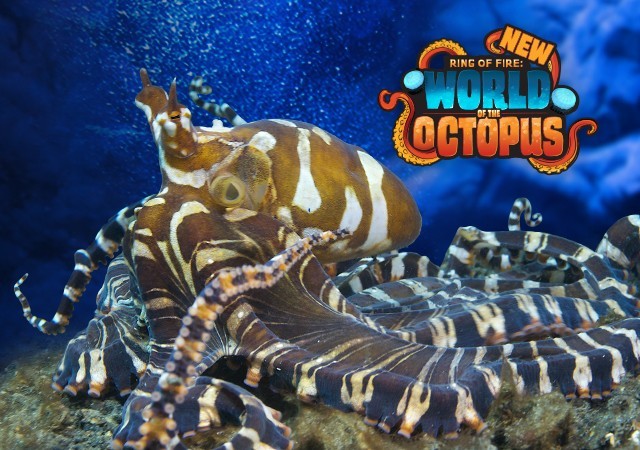– Introduction of the Ring of Fire: World of the Octopus exhibit at Newport Aquarium
– The ecological significance of deep-sea volcanic habitats
– The biology and adaptability of octopuses and similar marine species
– The role of aquariums in education and wildlife conservation
– Engagement opportunities for visitors at the new exhibit
Newport Aquarium marks its 25th anniversary with the launch of an exhilarating exhibit, Ring of Fire: World of the Octopus. This immersive experience transports guests into the depths of the ocean’s most volcanic regions, offering a rare glimpse into the lives of octopuses and other sea creatures that inhabit these extreme environments. As the exhibit opens this Friday, visitors will be introduced to a world where underwater volcanoes’ fiery wrath meets the deep sea’s icy chill, creating a paradoxical domain where life flourishes against all odds.
The ecological significance of deep-sea volcanic habitats cannot be overstated. These are ocean areas where tectonic activity and volcanic eruptions shape the complex seascapes, offering an array of ecological niches. The interaction between the molten lava and near-freezing seawater leads to the formation of hydrothermal vents, which are hotbeds of biodiversity. Despite the absence of sunlight, these vents are oasis-like habitats supporting unique ecosystems that rely on chemosynthesis for energy production. The Ring of Fire exhibit illuminates this mysterious environment, offering insights into the vast network of life that thrives beneath the waves.
Octopuses’ extraordinary intelligence, flexibility, and camouflage abilities are the main attractions at the Ring of Fire exhibit. These cephalopods are renowned for their problem-solving skills and have adapted impressively to the demanding conditions of their habitat. Visitors can learn about octopuses’ sensory capabilities, including their advanced vision and tactile exploration skills, in the exhibit, which showcases different species of octopuses and illuminates the behavioral adaptations that allow them to survive and thrive in a world where volcanic activity and oceanography intersect.
Aquariums play a critical role in wildlife conservation and public education. These institutions foster a deeper understanding and appreciation of marine species and their ecosystems through well-maintained exhibits like the Ring of Fire. These interactive experiences educate the public on the importance of ocean preservation and the threats marine life faces, such as pollution, overfishing, and climate change. By bringing people face-to-face with the beauty and complexity of underwater life, aquariums motivate visitors to become advocates for marine conservation.
To maximize engagement, the Newport Aquarium has designed the new exhibit with visitor interaction in mind. Live feedings, educational talks, and interactive displays allow guests to forge a personal connection with the marine inhabitants. The tactile engagement opportunities, where visitors can feel the texture of octopus skin or the contours of volcanic rock replicas, enrich the learning experience. By pairing these hands-on activities with informational signage and multimedia resources, the aquarium ensures that the exhibit is accessible to audiences of all ages and backgrounds, fostering a community of informed and enthusiastic ocean ambassadors.
In summary, the Ring of Fire: World of the Octopus presents an unparalleled educational experience that showcases the might and majesty of deep-ocean volcanic ecosystems and their inhabitants. As this new exhibit opens on Friday, it promises to captivate people’s hearts and minds and inspire a new generation to champion marine conservation.
*****
Source Description
THE NEW EXHIBIT OPENS ON FRIDAY! New for Newport Aquarium’s 25th Anniversary year, explore the ALL-NEW Ring of Fire: World of the Octopus! Between towering volcanoes and deep ocean trenches, strange sea creatures thrive. Meet new octopuses and animals that live where molten lava meets near-freezing sea water! Learn More at the Link in Bio


